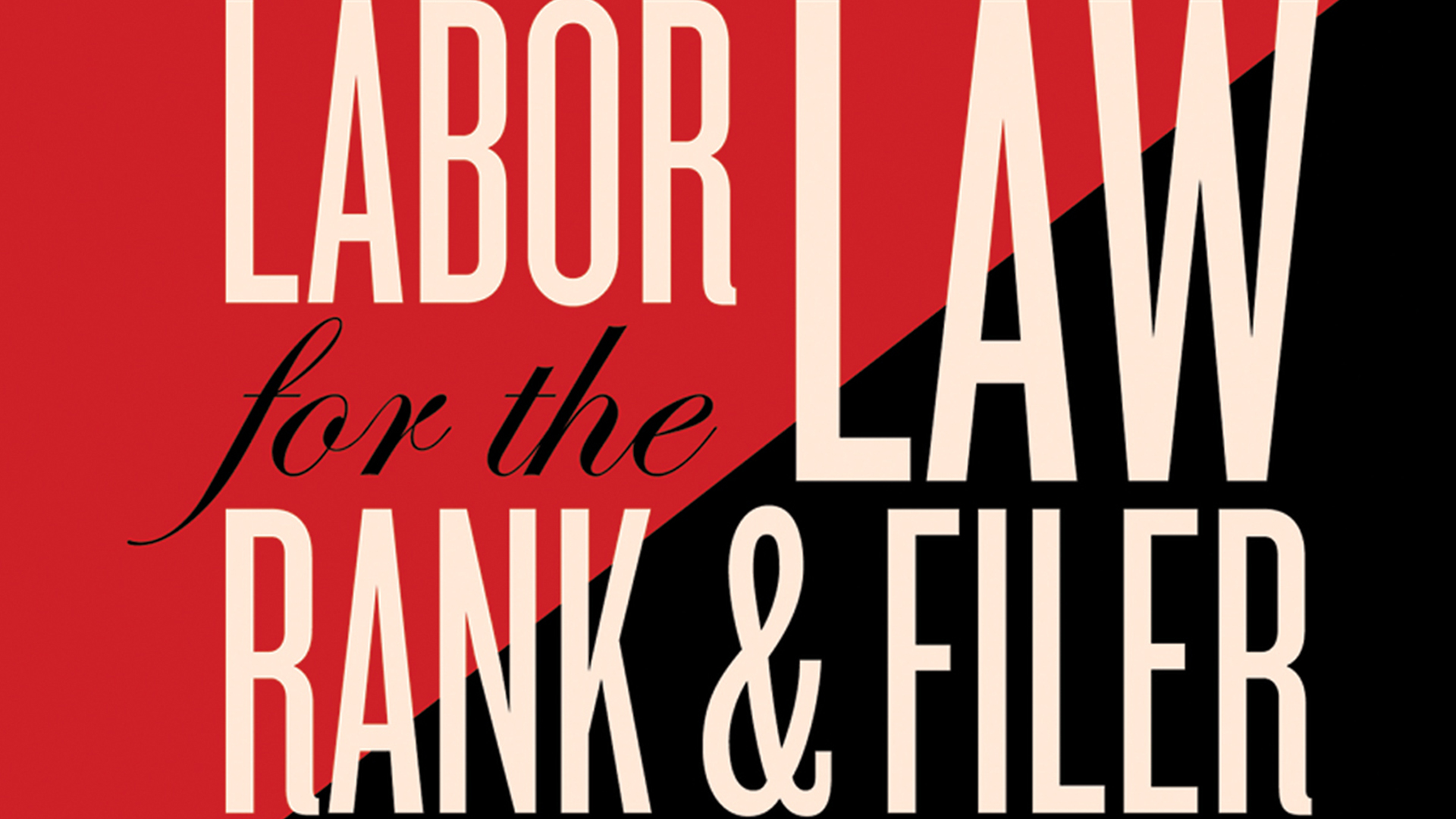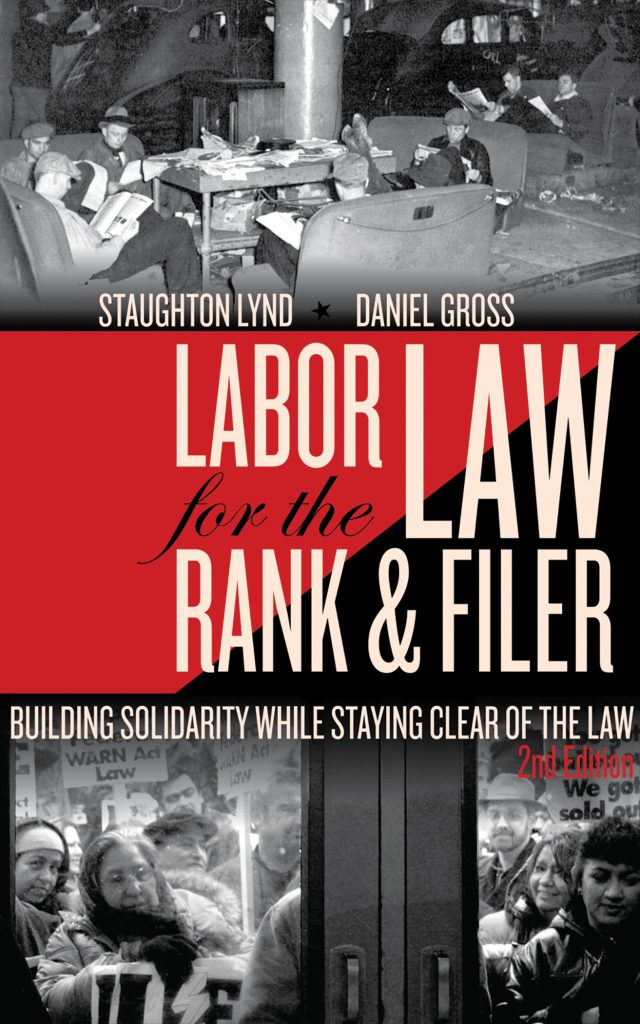By Ernesto Aguilar
Political Media Review
Romantic though it seems, the life of labor organizers and unions is messy. Most everyone is familiar with the firings for union organizing from which many a motion picture has borrowed from as grist. But such high drama can easily be avoided by bosses who understand the law and manipulate missteps to their advantage. No doubt corporate attorneys are able to advise their clients to thwart organizing while staying within guidelines. And then there are confused organizers who do not grasp the subtleties of labor issues, let alone their own rights, which can further damage the process. With such forces at play, it is a wonder labor organizing happens at all. Enter Labor Law for the Rank and Filer: Building Solidarity While Staying Clear of the Law by Staughton Lynd and Daniel Gross, an essential book for anyone interested in worker activism and doing so in a way that stays unruly while protecting employees.
There is plenty for those interested in labor organizing to be excited about. Lynd and Gross explain the most recent body of law in an easy to understand way. Practical wisdom beyond the law books abounds here as well. In some cases, that practicality is a cold glass of water to the face in terms of reminders. Lawyers and judges are not necessarily (and not historically) friends of labor, the authors caution, and though it is tempting to scuttle mediation, shop stewards and other means, non-litigious methods often serve workers better. They illustrate that point with plenty of examples of company employees applying unique and media-savvy techniques for getting corrective action while staying out of court. Lynd and Gross brand this one of the hallmarks of what they call solidarity unionism.
Solidarity unionism is an intelligible idea that might be distilled down to labor taking less of a defensive position and instead being proactive in addressing its own needs, with splashes of anti-globalization ideas thrown in. The concept of solidarity unionism, as one in which worker involvement ensures day-to-day workplace activities are equitable to labor, offers many stimulating opportunities. How is this organizing model applied longterm? How does one ensure it is sustainable when inevitable tensions and conflicts within the working class occur? Lynd and Gross present an intriguing vision that seems ripe for further application and exploration.
It is all but impossible to address
this book without acknowledging the stature of co-author Staughton Lynd.
Lynd has dedicated his life to political struggles; he directed the
Freedom Schools in the 1964 Mississippi Freedom Summer and led or was
actively engaged in countless union drives on the way to becoming one of
the most distinguished labor attorneys in the United States. He penned Labor Law
over 25 years ago, and this edition’s fresh approaches breathe new life
into Lynd’s manifesto, as much Saul Alinsky as it is Joe Hill.
Ticking in at just over 100 pages, Labor Law
throws together elements of legal advice, agit-prop and Organizing 101
as a challenge to the way we look at unions and labor activism. One can
only hope workers and supporters are listening to words so thoughtful.
Back to Staughton Lynd’s Author Page | Back to Daniel Gross’s Author Page







